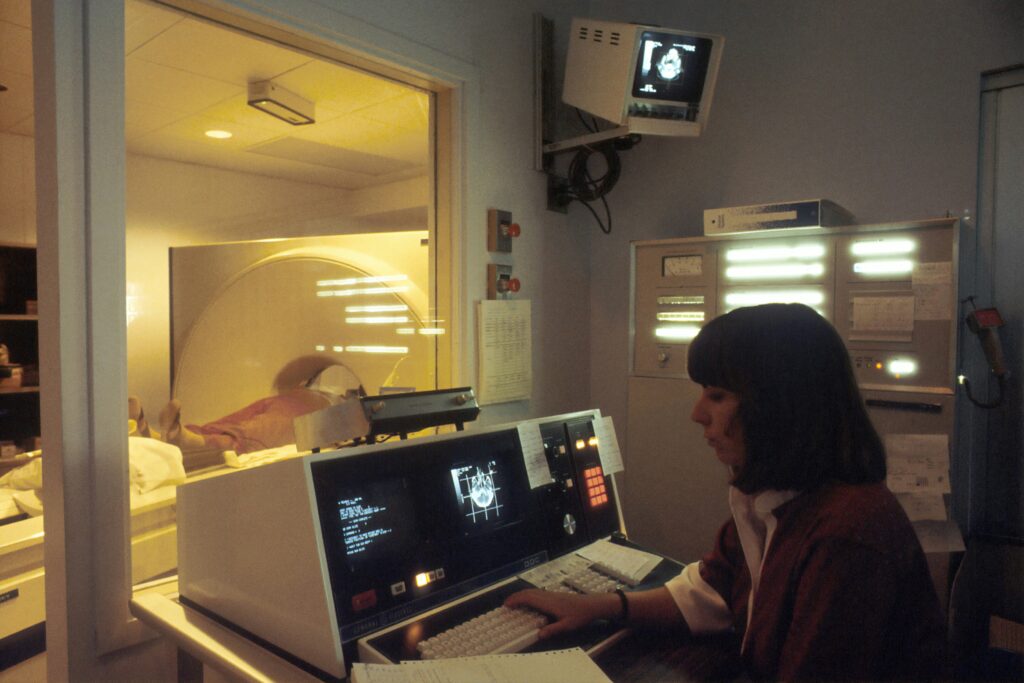
TAMPA, Fla. (Sept. 15, 2025) — In a groundbreaking study published in JCO Clinical Cancer Informatics, researchers at Moffitt Cancer Center have demonstrated that machine learning models, which incorporate patient-reported outcomes and data from wearable sensors, can effectively predict urgent care visits for patients with non-small cell lung cancer. This innovative approach aims to identify patients most at risk of requiring urgent medical attention during their treatment.
Patients undergoing systemic therapy for non-small cell lung cancer frequently experience treatment-related toxicities, often leading to unplanned urgent care visits. The Moffitt study explored whether integrating diverse sources of patient-generated health data, such as self-reported quality-of-life surveys and metrics from wearable devices like sleep patterns and heart rate, could enhance prediction accuracy beyond traditional clinical and demographic data.
Innovative Use of Machine Learning in Healthcare
The research team employed explainable machine learning techniques, specifically Bayesian Networks, to develop predictive models. These models were tested on a cohort of 58 patients, who were monitored using Fitbit devices and completed detailed questionnaires. The results showed that models incorporating patient-reported outcomes and wearable sensor data significantly outperformed those relying solely on clinical data in distinguishing between high-risk and low-risk patients.
“By combining information patients provide about their symptoms with continuous monitoring from wearable devices, we can better identify who is most at risk for treatment complications,” said Brian D. Gonzalez, Ph.D., lead author and researcher in Moffitt’s Department of Health Outcomes and Behavior.
The study’s findings suggest that integrating multidimensional data into machine learning models could revolutionize personalized cancer care, allowing healthcare providers to proactively address treatment toxicities before they escalate. Although the study was limited to a single center and a modest sample size, researchers are optimistic about its broader application potential.
Understanding the Impact of Explainable AI
One of the study’s significant breakthroughs is the use of explainable machine learning methods, which provide transparency in how predictions are made. This transparency is crucial for building trust among clinicians and ensuring that these models can guide real-world decisions in cancer care.
“What makes this approach powerful is not only the accuracy of the predictions, but also the ability to understand why the model reaches those predictions,” said Yi Luo, Ph.D., co-author and researcher in Moffitt’s Department of Machine Learning. “By using explainable machine learning methods, we can see how factors like symptom reports, sleep quality, and lab results interact to influence risk.”
This development follows growing interest in the application of artificial intelligence in healthcare, particularly in predictive analytics that can lead to more personalized and proactive treatment strategies. The ability to predict urgent care needs not only improves patient outcomes but also optimizes resource allocation within healthcare systems.
Future Directions and Broader Implications
Looking ahead, Moffitt researchers plan to expand their models to include additional clinical and molecular data, with the goal of validating their results in larger, multi-institutional cohorts. This future research is expected to further refine the predictive capabilities and applicability of the models across diverse patient populations.
The study was supported by the National Institutes of Health (P30 CA076292), underscoring the importance of continued investment in innovative cancer research. As healthcare systems worldwide grapple with the challenges of providing personalized care, the integration of AI and machine learning represents a promising avenue for enhancing patient outcomes.
Moffitt Cancer Center, a Tampa-based facility and one of only 57 National Cancer Institute-designated Comprehensive Cancer Centers, remains at the forefront of efforts to contribute to the prevention and cure of cancer. This latest study highlights their commitment to leveraging cutting-edge technology to improve cancer care.







